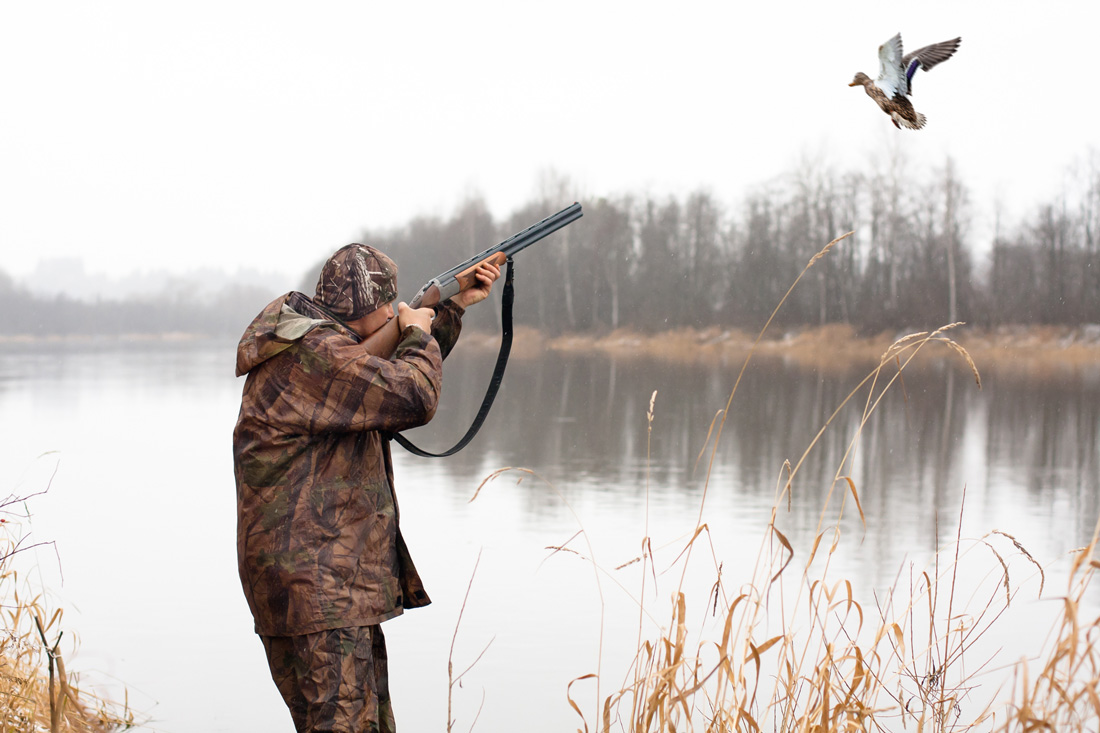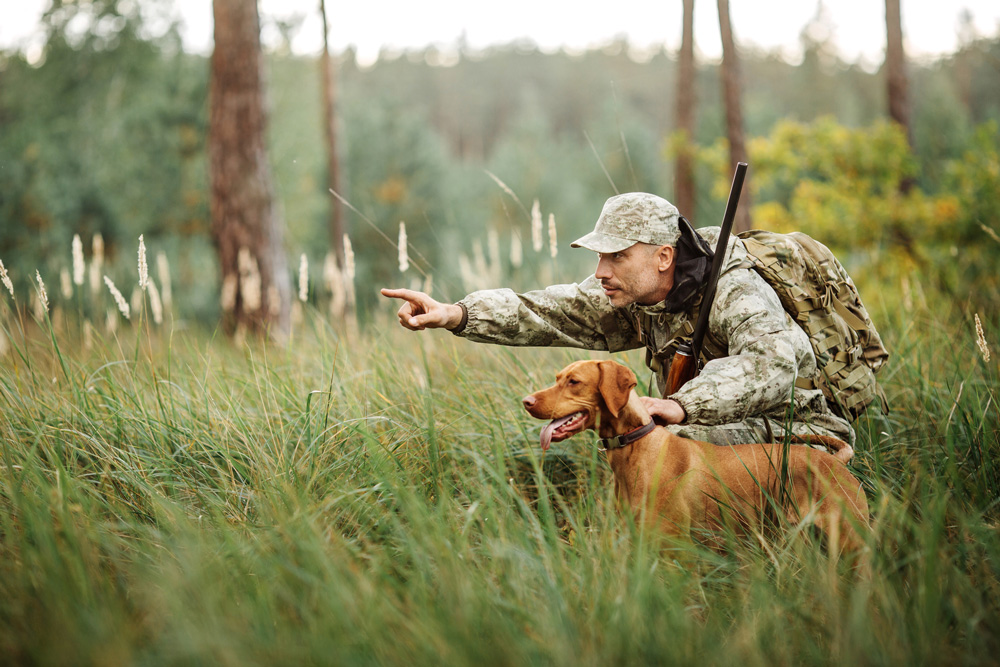Are you preparing for your initial hunting lease? Remember, preparation is crucial. Hunting leases provide an exciting opportunity to connect with nature, hone your skills, and secure valuable catches. However, a fulfilling adventure hinges on meticulous preparation. Being prepared enhances your chances of success and strengthens your connection with the environment and wildlife. From researching leases to comprehending rules, readiness cultivates respect for the sport. Visualize yourself hidden, awaiting in the wilderness.
Success is contingent on skill, strategy, and groundwork in hunting leases. Whether you’re a newcomer to hunting or transitioning from a different approach, these insights will expertly steer you towards a gratifying leased hunt. Below are the tips for your inaugural hunting lease.
1. Select The Right Leased Hunt
Selecting the perfect hunting lease forms the bedrock of an unforgettable experience. Thorough research is essential for making informed choices. This involves exploring local and neighboring state options that align with your preferences and target species—such as deer, turkeys, and waterfowl. It’s crucial to comprehend the terrain and habitat to ensure successful hunting.
After identifying potential hunting leases, carefully review and understand the lease agreements. This will enable you to examine the lease terms, fees, and restrictions closely. Certain leases might have specific regulations concerning the type of hunting equipment permitted, while others could provide outstanding amenities that enhance your experience. Comprehensive research guarantees a seamless and enjoyable journey.
2. Understand Local Wildlife And Regulations
After making your selection, it’s wise to familiarize yourself with the wildlife within your hunting lease. A comprehensive grasp of your target species’ behaviors, movement patterns, and feeding habits can greatly amplify your success rate. To predict their actions, achieve this by studying their habitat, favored food sources, and potential hiding locations.
Equally essential is acquainting yourself with local hunting regulations. Conduct thorough research on your hunt’s licensing and permit prerequisites while adhering to bag limits and designated hunting seasons. Adherence to these regulations is a legal obligation and a means of safeguarding the sport’s future and preserving the ecosystem.
3. Gear Up With Proper Equipment
Having comprehended the regulations, assembling the appropriate hunting gear and equipment becomes imperative. The checklist is comprehensive, so meticulousness is key. Firearms, ammunition, archery equipment, and optics are essential tools. Choosing these based on the species you’re pursuing and the hunting environment is essential.
The significance of weather-appropriate clothing and footwear cannot be overstated. Invest in high-quality, camouflaged attire that ensures your comfort and concealment. Furthermore, specialized equipment such as treestands, blinds, decoys, calls, and scents offer a strategic edge by emulating natural elements and enticing your quarry.
4. Prepare Yourself Physically And Mentally
Following the preparation of your gear, hunting demands both physical and mental readiness. Rugged terrains and demanding conditions mandate a certain degree of physical fitness. Engage in exercise routines that bolster your strength, endurance, and agility while also mimicking hunting movements to familiarize your body with forthcoming challenges.
Mentally, establish realistic objectives, and effectively manage your expectations. Acknowledge that hunting encompasses periods of anticipation and patience interspersed with sudden moments of activity. Developing mental resilience will aid in navigating unpredictability and maintaining a positive outlook, irrespective of the outcome.
5. Prioritize Safety And Etiquette
When you are prepared, prioritize safety throughout your hunting lease. Familiarize yourself with the core principles of firearm safety, emphasizing proper handling, loading, and unloading protocols. Effective communication with fellow hunters is crucial to sidestep conflicts and uphold a secure environment. Additionally, pack essential emergency supplies and establish clear communication channels to address unforeseen circumstances.
Respect for the land and your fellow hunters is integral to the hunting community. Adhere to the leave-no-trace principles to minimize your environmental footprint. Moreover, the disposal of waste should be done responsibly, and ethical hunting practices that prioritize humane and responsible game harvesting should be upheld.
6. Exploration And On-Site Preparation
Before commencing the hunt, visiting your hunting lease is essential. Acquaint yourself with the topography, identify optimal hunting locations, and recognize signs of wildlife presence. Moreover, observe indications of wildlife activity, such as tracks, droppings, and feeding zones. This strategy empowers effective strategizing and heightens the probability of encountering the game.
Establishing and maintaining your hunting equipment is of paramount importance. Precise placement of treestands or blinds necessitates meticulous consideration of wind direction, animal pathways, and concealment. Employ scent control and camouflage techniques to remain concealed from your quarry.
7. Mastery Of Tracking, Harvesting, And Field Dressing
Mastery of tracking, such as identifying tracks and prints, scanning for broken vegetation, is an essential skill for all hunters. Learn effective blood trailing techniques to locate injured animals efficiently. This practice is ethical and minimizes suffering, which ensures humane harvesting.
Afterward, it is crucial to employ correct field dressing methods, including making the initial incision, gutting, taking out internal organs, separating the diaphragm, and skinning the animal. Ensure you possess the essential tools and knowledge to correctly field dress the harvested animal. This procedure safeguards the meat’s quality and guarantees your efforts yield a worthy reward. Additionally, emphasize hygiene and sanitation to ensure safety and meat quality.
Conclusion
Setting out on your first hunting lease requires meticulous preparation for a successful and rewarding experience. These insider tips emphasize readiness as the cornerstone of your journey. Guided by these insights, you’ll skillfully navigate the highs and challenges of hunting leases which can foster a profound connection with the natural world and uphold the principles of responsible stewardship. Anticipate an exhilarating hunt that brings excitement and leaves a legacy. Remember, your preparation and dedication are the key to a successful leased hunt.







